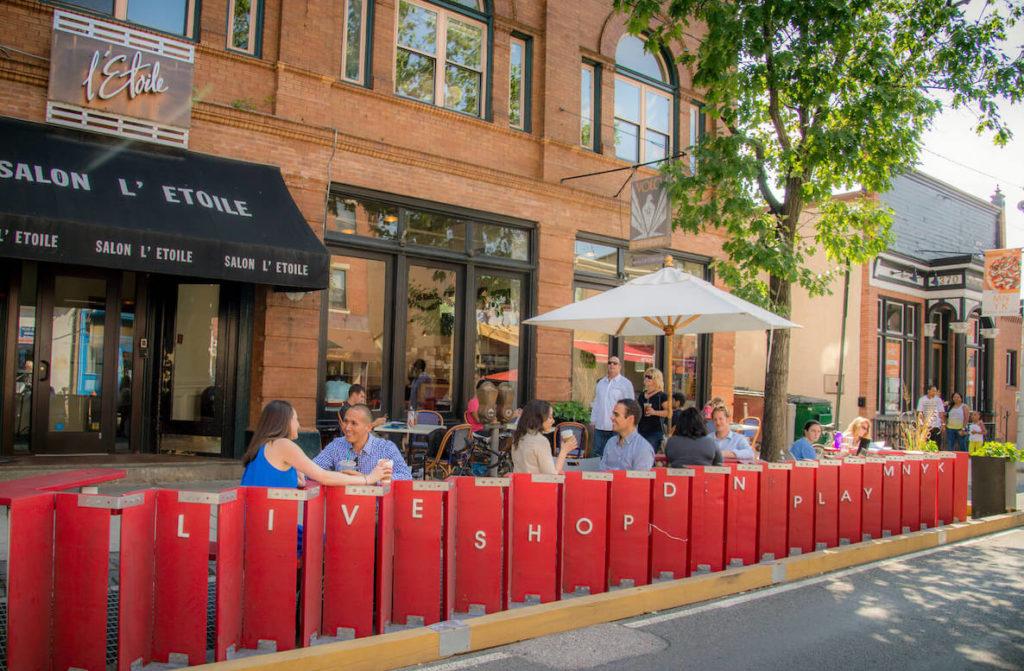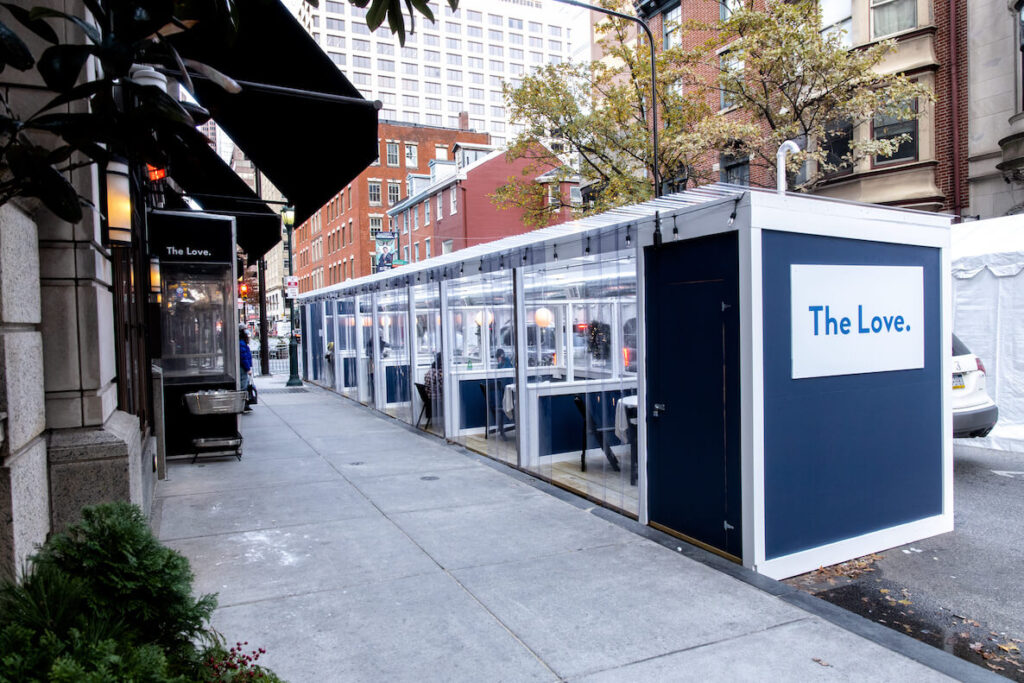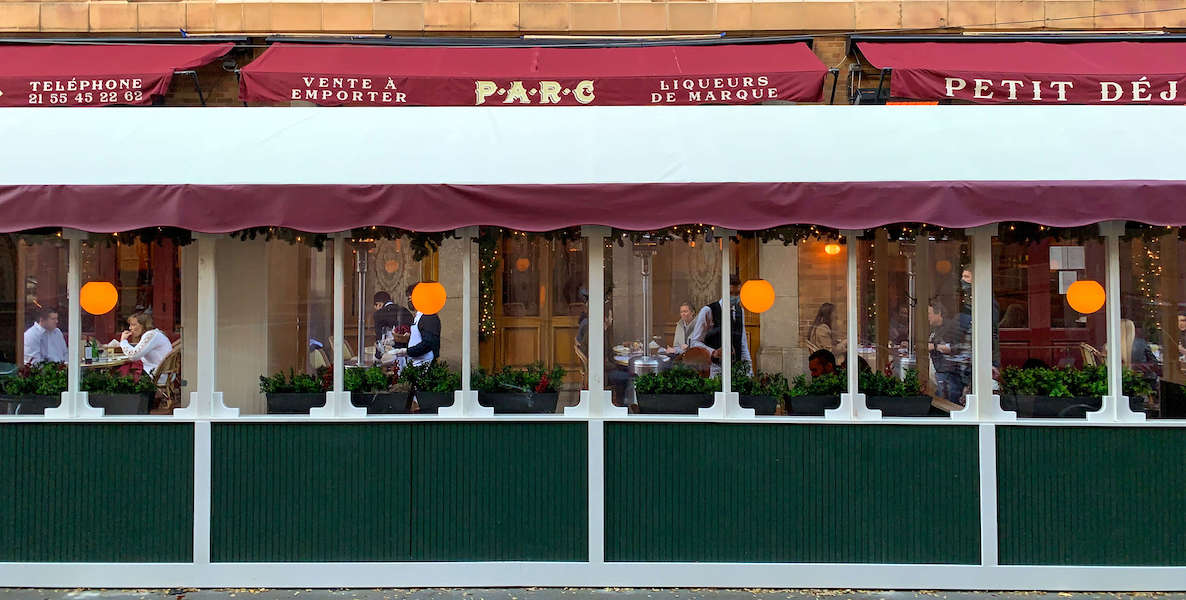Did you know that after the French Revolution, street vendors were the first to use the word “restaurant”—from the French word restaur (to restore)—and they sold a bouillon that was said to refresh the spirit?
In her book The Invention of the Restaurant: Paris and Gastronomic Culture, author Rebecca Slang explains the role that restaurants—with their “restorative broth”—had on the psyche of a populace. Soon, they became communal spaces and an Enlightenment-era signpost: In urban settings, folks coming together to break bread conveyed an important message in fractured times: We’re all in this together.
That’s why, for the life of me, I can’t understand the war Mayor Jim Kenney is waging on local restaurants, an industry not only with some 20,000 local employees, but one that helped all of us get through the pandemic. Now that I’m back in restaurants, I look around wistfully, taking it all in. How I missed this. Cities are about vastly different groups of people, all living one on top of another, coming together; there are few better places for some e pluribus unum-ing than in urban dining rooms. What was true in France 270 years ago remains so today: Restaurants restore us.
For the life of me, I can’t understand the war Mayor Jim Kenney is waging on local restaurants, an industry not only with some 20,000 local employees, but one that helped all of us get through the pandemic.
And right now we should all feel in their debt. We don’t often think of restaurant owners, waiters, busboys and cooks as frontline workers, and shame on those of us in the media for not correcting that impression.
Let’s review two recent examples of the war on restaurants. First, it came to light this week that the administration quietly released new, onerous regulations attached to the city’s new streatery law. Restaurant owners will now have to pay an annual $2,200 license fee in addition to a $200 application fee; access a $60,000 bond to cover the costs for mandatory removal of streatery structures during snowstorms; and abide by new construction requirements that include the running of generators and installation of underground electrical lines—a potentially prohibitive cost.
Mind you, some or all of these regulations and costs might be necessary—what the hell do I know?—but the point is they weren’t publicly litigated. We went through a legislative process, Council passed a law, and now a host of regulations have been stealthily added in a manner more reminiscent of Politburo decree than democratic give-and-take.
I caught up with Councilman Allan Domb on Wednesday, who says he was “blindsided” by the administration’s action, but he’s working with the mayor’s team and is hopeful that many of these issues might be “worked out.” He corrects me when I say it feels like war has been declared against restaurateurs.
“That’s going too far,” Domb, a restaurant owner himself, says. He reminds me that, early in the pandemic, this same administration cut reams of red tape in order to quickly enable outdoor dining. These stealth regulations, he suggests, are more likely a case of bureaucracy run amok than a sign of hostility directed toward one industry.
That’s certainly plausible here in Moscow on the Delaware, but some remarks by Mayor Kenney last week certainly point to some pent-up ire for the restaurant industry. “If we had listened to restaurateurs two years ago, we’d have (an additional) 2,000 people dead in the city,” he said at a recent news conference. “They didn’t want to close anything down.”
“I don’t know where that comment is coming from,” Nicole Marquis, CEO and founder of HipCityVeg and a local leader in the $15 minimum wage movement, told Fox 29 in response. “Restaurants have been in the forefront of all this. We set up vaccine clinics, we’ve done testing clinics for all restaurant employees, we have been on the frontlines working so hard, so it seems a little insensitive and out of touch to make a comment like that, especially when restaurants, the lifeblood of the city, have been through so much.”
Why is Kenney so mad at restaurateurs?

Just spit-ballin’ here, but could it have something to do with his infamously Trump-like thin skin? Remember, it was chef Marc Vetri who tweeted a photo of the mayor dining indoors in Maryland after his ban on indoor dining had gone into effect here. It went viral, embarrassing the mayor nationally.
To be clear: Some restaurateurs have been very critical of the mayor throughout the pandemic. Now, I happen to think, despite a few missteps—like turning the city’s vaccination program over to a college kid—that Kenney did a pretty good job managing the city’s pandemic response. But part of the job of being mayor—a job Jim Kenney hates, as he’ll tell anyone who asks—is being criticized. Sopranos-like settling of old scores is no way to govern a city.
That said, Domb may be on to something when he points to bureaucratic fumbling in this latest case. Mayor Kenney has become so detached he may not have even known about the regulations his own administration released. But there’s no question that city government has long been antagonistic toward small businesses in general and restaurants in particular.
Last summer, we dispatched undercover writer Thomas Koenig to play the part of budding entrepreneur and walk us through the byzantine process of opening a restaurant in Philly. His Kafka-esque journey revealed a city that doesn’t think of its citizens—especially those who will be hiring fellow citizens—as its customers.
Here’s just a snippet of Koenig’s report, but I encourage you to read it in full context; it will be hard to keep from wondering why anyone would want to open a restaurant here:
- I was asked what specific type of business I’m hoping to start. I clicked the “Food & Drink” tab and then the “Restaurant/Bar” subheading.
- I clicked on the “Starting Your Food-Related Business” subheading listed under “Required.” It lists the following seven steps to setting up a food-related business in Philadelphia:
- Confirm your location is properly zoned for your intended business with the Department of Licenses and Inspections.
-
- To complete this step, I first read through the Department of Health PDF that provides step-by-step instructions on each of these steps. It says that with this zoning portion of the process, the first step would be to consult the City’s zoning map and zoning code.
- But the two hyperlinks in the PDF didn’t work! Well, that’s frustrating.
- So, I Googled “Philadelphia zoning map,” and the first result was the city’s Atlas mapping tool…
- But what zoning classification/category fits my would-be restaurant? To figure this out, I noted that the Department of Health PDF refers me to §14‐602 of the Zoning Code…that Zoning Code hyperlink doesn’t work (*insert eye-roll emoji*).
- The Department of Health PDF links me to the Application for Zoning/Use Registration Permit from the Department of Licenses & Inspections. This link works! It also sends me to a lengthy checklist of materials and information I’ll need to have on hand to apply for the permit, including approvals from all or some of the following departments: Streets Department for (among other things) parking or overhangs; City Planning Commission for several things including “facade changes within the Center City Control District” (?!), landscaping around parking areas, and applications for wireless service; Art Commission for any signs that extend more than 12 inches beyond the property; Fairmount Park Commission; Water Department.
-
It gets worse, but you get the idea: If you have a hankering to open a restaurant—or, for that matter, any small business in Philadelphia—you have a whole bunch of crap thrown in your way that makes you feel crushingly alone. You want to do something good, something that will benefit you and your neighbors, and your city seems not to care.
RELATED: 19 great Black-owned businesses in Philly to support right now
That isn’t always the case elsewhere

In New York, for example, Koenig reports that there’s “a personalized step-by-step guide tool that walks you through all the information you’ll need to set up your business and jump through all the regulatory hoops.” More recently, saying that “we have used our agencies to turn the American dream into a nightmare,” New York’s Mayor Eric Adams has gone even further, issuing an executive order that reforms the small business regulatory industrial complex into a more customer-friendly experience.
When it comes to restaurants, Adams stands in stark contrast to Kenney. Adams tweeted, oddly in the third person, last October: “Our restaurants are a bellwether for NYC, and outdoor dining is a huge part of what kept them afloat this past year. Eric supports outdoor dining because he believes in giving our restaurants every opportunity to succeed.”
There is this strain of thought out there, particularly among the far left who want jobs without employers, that restaurateurs somehow represent the 1 percent. Actually, eight out of 10 restaurants fail, and, unless you’re fortunate to get bought out by, say, Urban Outfitters (looking at you, Vetri), it’s a famously small-margin business.
I’ve spoken to a number of bold-face name restaurateurs of late, and have heard from them tales of impending dystopia. The industry employs more than 20,000 residents, 95 percent of whom, according to Domb, live in the city; their workers are afraid to walk home late at night, courtesy of the crime and disorder the Kenney administration has been unable to combat. And now we’re making it harder for them to make ends meet?
In the end, it’s our common things that are going to save us, which means that, especially when it feels like the world is falling apart, government needs to overcome its sclerotic nature, put aside its pettiness, and make it easier for citizens to come together to eat, drink, generously tip their waitstaff…and drink some more.
I’m old enough to remember when Center City was a veritable ghost town at night. Former Mayor Ed Rendell is widely credited with orchestrating Philly’s comeback in the ’90s, and that is mostly true. He was a force-of-nature leader who willed the city back to life.
But it’s also true that, when the city virtually closed after rush hour (a groundbreaking Rendell campaign was called “Make It a Night” and its big selling point was that retail stores would stay open until 8pm on Wednesdays), a one-time concert promoter with a weekend radio show that opened with audio of a dude taking a leak had the cajones to open something called The Continental at 2nd and Market.
Stephen Starr had sampled Los Angeles’ burgeoning cocktail culture, so cleverly captured in the movie Swingers, and he imported the idea of a boozy, small-plates ode to Rat Pack nostalgia on the deserted streets of Old City. I was there on opening night, and you felt like something new and important was happening. The city had restaurants, sure, but no nightlife. Starr, who quickly built an empire, infused a sense of energy on our streets, like an Armani-wearing Jane Jacobs, a de facto evangelist for the power of feet on the street.
Why this trip down memory lane? Because when Jim Kenney makes snide comments about those who feed us, and when his government makes it harder for them to do so, what gets lost is the outsized impact restaurants can have on a city’s collective psyche. This may sound melodramatic, but hear me out.
At a time when democracy and freedom is literally under assault in Ukraine and is increasingly on shaky ground here at home, coming together, en masse, to break bread while sitting side by side with your neighbor is an act of citizenship. It’s harder to call someone an asshole when you’re both crunching on Michael Schulson’s tuna rice cracker at Double Knot.
I really think that, in the end, it’s our common things that are going to save us, which means that, especially when it feels like the world is falling apart, government needs to overcome its sclerotic nature, put aside its pettiness, and make it easier for citizens to come together to eat, drink, generously tip their waitstaff… and drink some more.
![]() RELATED
RELATED
Header photo of Parc by Stokes Architecture + Design




